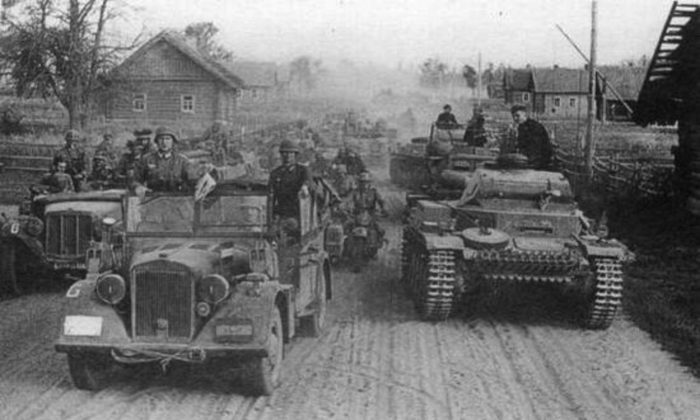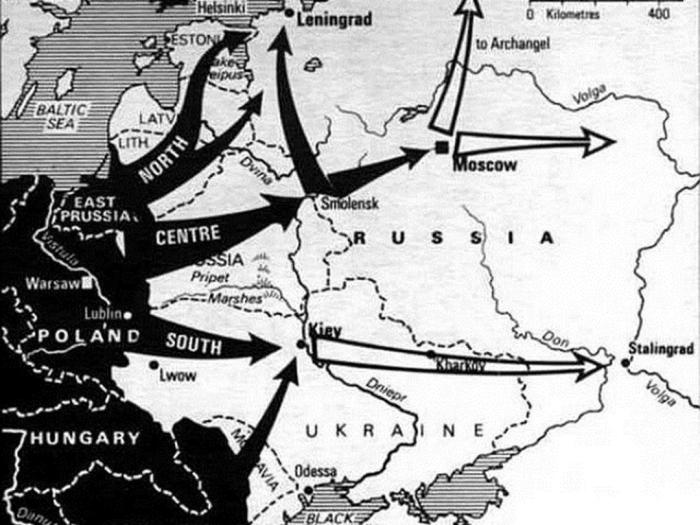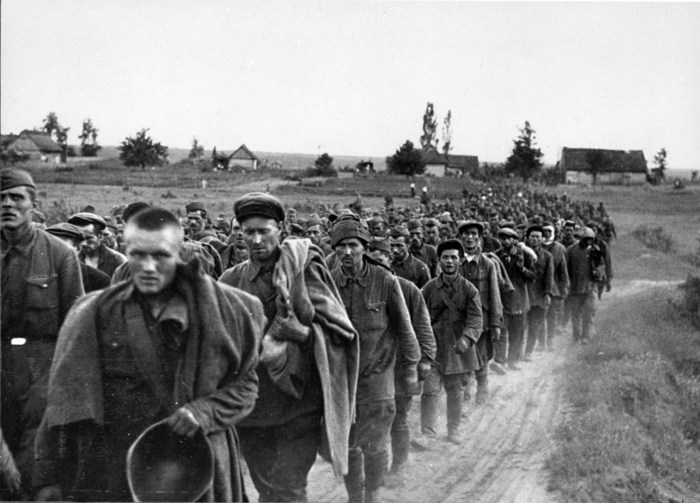What if operation barbarossa succeeded – What if Operation Barbarossa, Nazi Germany’s invasion of the Soviet Union, had succeeded? This hypothetical question opens up a vast and intriguing realm of possibilities, inviting us to explore the profound implications it would have had on the course of World War II and the global balance of power.
Had the German forces triumphed, the consequences would have been far-reaching and transformative, shaping the political, economic, and social landscapes of both Germany and the Soviet Union. The hypothetical outcomes of this alternate history provide invaluable insights into the dynamics of war and conquest, offering lessons that resonate with contemporary geopolitical issues.
Historical Overview

Operation Barbarossa, launched on June 22, 1941, was Nazi Germany’s invasion of the Soviet Union. The goal was to conquer the vast Soviet territory, establish a German empire in the East, and eliminate communism. The invasion was initially successful, with the Germans capturing vast territories and inflicting heavy casualties on the Soviet forces.
However, the Soviet Union’s vastness, the resilience of its people, and the harsh Russian winter ultimately proved to be insurmountable obstacles for the German invaders. The turning point came at the Battle of Stalingrad, where the Soviet army encircled and defeated the German 6th Army, marking the beginning of the German retreat from the Soviet Union.
Hypothetical Outcomes

If Operation Barbarossa had succeeded, the consequences for Germany, the Soviet Union, and the world would have been profound. Germany would have gained control of vast resources, including oil, minerals, and agricultural land. This would have strengthened Germany’s economic and military power, potentially allowing it to dominate Europe and beyond.
The Soviet Union would have been dealt a devastating blow, losing vast territories and millions of people. The Soviet Union’s ability to resist Nazi aggression would have been severely weakened, potentially leading to the collapse of the communist regime.
The global balance of power would have been dramatically altered. Germany would have emerged as the dominant power in Europe, while the United States would have been weakened by the loss of its Soviet ally. The world could have been plunged into a prolonged period of instability and conflict.
Counterfactual Analysis
Several key factors could have led to a different outcome for Operation Barbarossa. The German army’s failure to capture Moscow in the early stages of the invasion was a major setback. The Soviet Union’s ability to mobilize its vast industrial resources and manpower also played a crucial role in its eventual victory.
The decisions of key individuals, such as Hitler’s decision to invade the Soviet Union in the first place and Stalin’s decision to evacuate Soviet industries to the east, also had a significant impact on the outcome of the war.
Chance and contingency also played a role. The harsh Russian winter and the Soviet army’s resilience proved to be insurmountable obstacles for the German invaders.
Comparative Case Studies: What If Operation Barbarossa Succeeded
The hypothetical outcomes of Operation Barbarossa can be compared to other successful and unsuccessful military campaigns in history. The German invasion of France in 1940, which resulted in a swift German victory, provides a contrasting case study.
The lessons learned from Operation Barbarossa and other military campaigns can help us understand the dynamics of war and conquest. They can also provide insights into the risks and opportunities associated with military intervention.
Implications for Contemporary Policy

The hypothetical outcomes of Operation Barbarossa have relevance for understanding current geopolitical issues. The invasion highlights the dangers of military aggression and the importance of strategic planning and risk assessment.
The lessons learned from Operation Barbarossa can help policymakers avoid the mistakes of the past and make informed decisions about the use of military force.
Questions and Answers
What were the key factors that contributed to the failure of Operation Barbarossa?
Several factors contributed to the failure of Operation Barbarossa, including the vastness of the Soviet territory, the resilience of the Soviet people, and the severe winter conditions. Additionally, logistical problems, inadequate intelligence, and overextension of German supply lines played a significant role in the German defeat.
What were the potential political consequences if Operation Barbarossa had succeeded?
A successful Operation Barbarossa would have resulted in the collapse of the Soviet Union and the establishment of a Nazi-dominated Europe. This would have had profound implications for the political landscape of the world, potentially leading to a prolonged period of German hegemony and the suppression of democratic values.
What lessons can be learned from the hypothetical outcomes of Operation Barbarossa?
The hypothetical outcomes of Operation Barbarossa offer valuable lessons about the importance of strategic planning, the risks of military overextension, and the resilience of nations in the face of adversity. They also highlight the unpredictable nature of war and the need for careful consideration of potential consequences before embarking on military interventions.